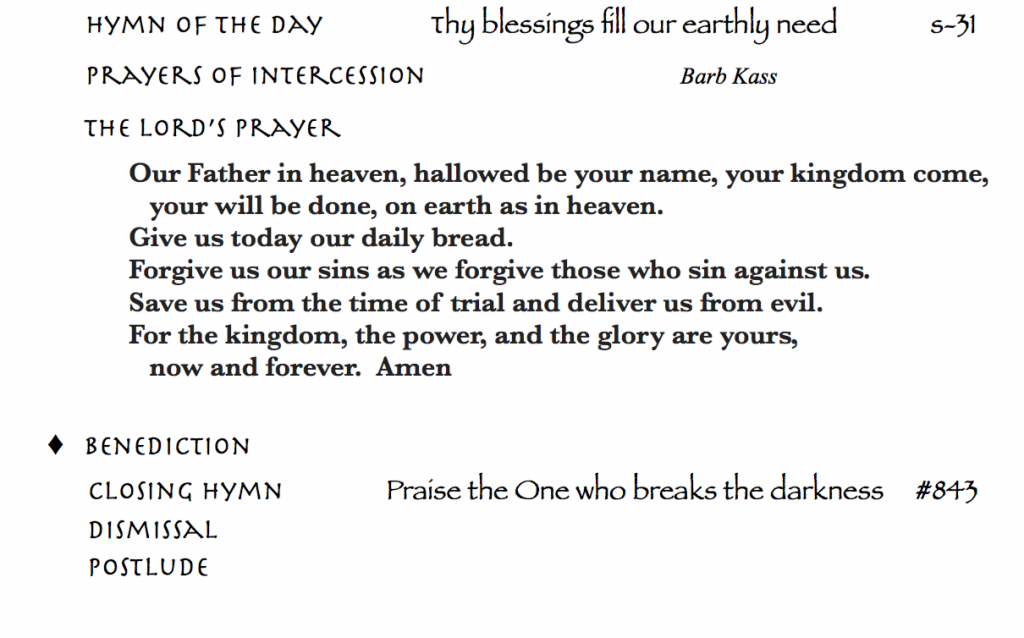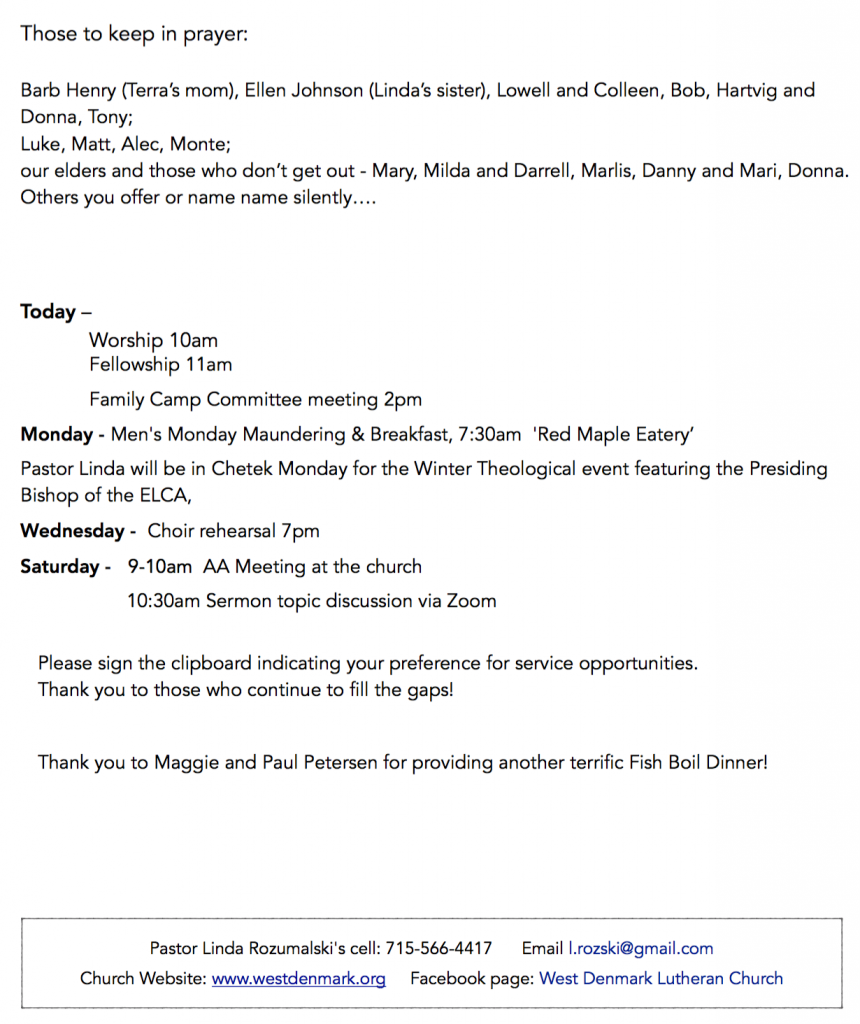Audio Recording
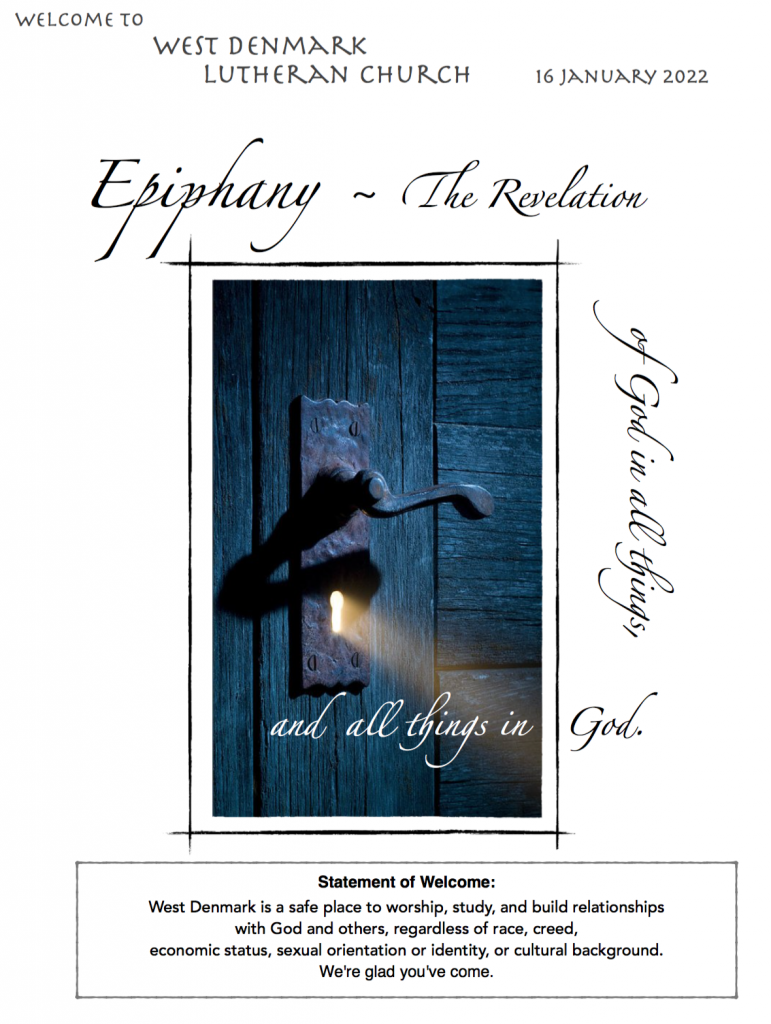
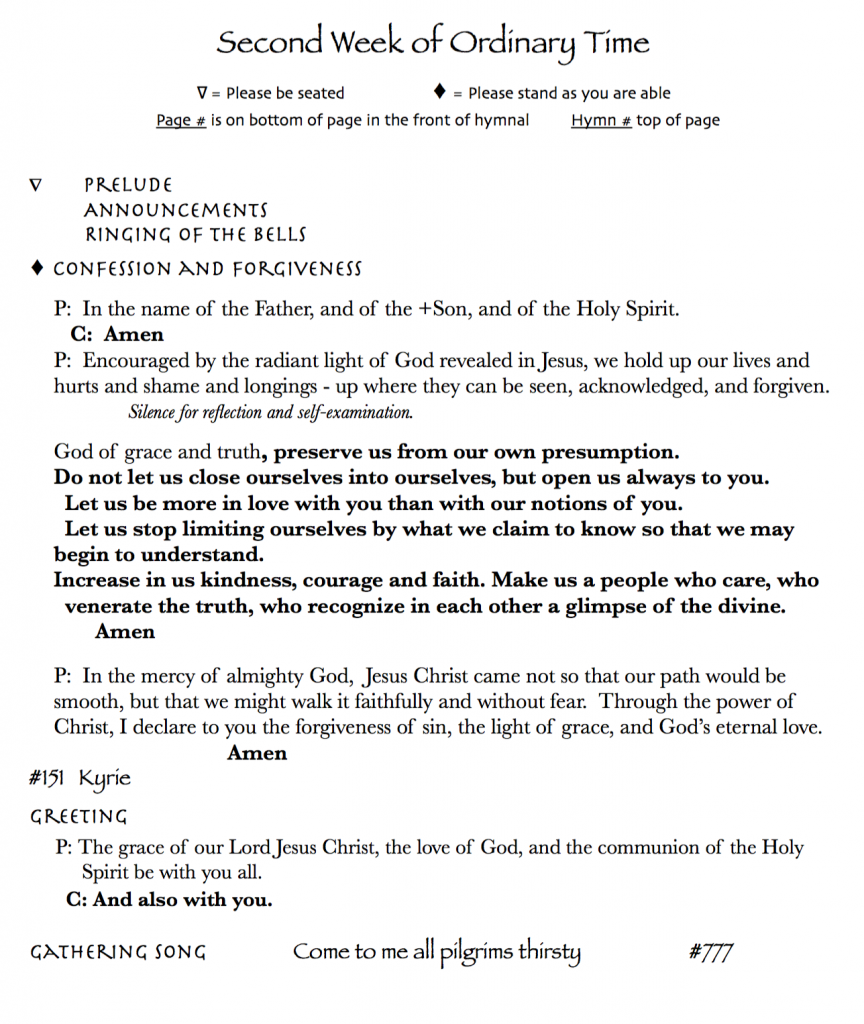
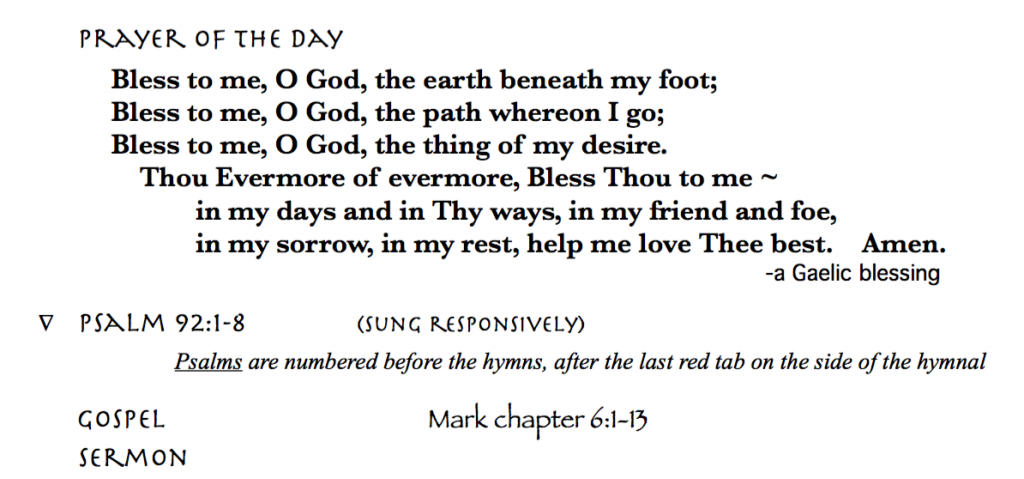
Mark 6:1-13
Jesus and his entourage leave Galilee and go back to Nazareth, back to his hometown. On the sabbath he began to teach in the synagogue, and many who heard him were struck with astonishment. They said, “Where did this man get all this? What is this wisdom that’s been given to him? What deeds of power are being done by his hands! Is not this the carpenter, the son of Mary and brother of James and Joses and Judas and Simon, and are not his sisters here with us?”
And they took offense at him. (It can also be translated as “stumble”, they stumbled over him – I like that. They were astounded and befuddled and frightened; tripped up by the unexpected wisdom and miracles. He had been one of them, and now wasn’t, and it made them really uncomfortable.)
Then Jesus said to them, “Prophets are not without honor, except in their hometown, and among their own kin, and in their own house.” And he could do no deed of power there, except that he laid his hands on a few sick people and cured them. But he was amazed at their lack of faith.
Then he went about among the villages teaching. He called the twelve and began to send them out two by two, and gave them authority over the unclean spirits. He ordered them to take nothing for their journey except a staff; no bread, no bag, no money in their belts; they were to wear sandals but not carry an extra tunic. He said to them, “Wherever you enter a house, stay there until you leave the town. If any place will not welcome you and they refuse to hear you, as you leave, shake off the dust that is on your feet as a testimony against them.” So they went out and proclaimed that all should repent. They cast out many demons, and anointed with oil many who were sick, and cured them.
In the Christian calendar, this time between Christmas and Lent is called Epiphany. In the natural world of the northern hemisphere, this is the season when light is noticeably increasing. We take note of the slight, incremental advances day by day because we miss sunshine. Epiphany, too, is a season of light – ‘the Light that shines in the darkness, that the darkness has not overcome’ as revealed in Jesus. The lectioneries fill these weeks with Jesus being recognized through prophetic words and God’s acts of mercy and healing. So, these dormant months become a multi-layered opportunity for us to consider light.
A few years ago, I was gifted an LED desk lamp that is a 10 by 1 inch light bar. It is endlessly adjustable with 12 points along an arched continuum from ‘barely on’ to ‘bright as day’. There’s also a vertical continuum of color between a warm golden glow and bight daylight. The fixture itself has two joints that bend and swivel independently. It’s endlessly adjustable.
In the diminished light of winter, I carry this little lamp with me from room to room. It was a wonderful gift given by someone else who has a difficult time getting through the winter. We need light! I know there is brilliant sunlight outside for a few hours most days. But it’s cold, And it gets dark so bloody early, And the grass doesn’t need mowing, And gardens don’t grow, And feeding the birds doesn’t take very long, so I have no good reason to be outside, And I like to be cozy. So I don’t get enough light.
If I’m honest, I have just as many excuses that get in the way of a spiritual enlightening. Maybe you do, too. We need light – physical light and God’s light – and yet, we like to be cozy and we’re creatures of habit. Not many of us are in the habit of intentionally considering the Spirit’s light in our lives or commit to a practice of basking in it. We need maybe a tanning booth of spiritual light.
I talk to a lot of people in the congregation and outside of it who are religious but not spiritual – it’s the reverse of ‘spiritual but not religious’ that we hear about out in the community. We go through the motions, we put ourselves in the way of faith, but don’t always (or ever) feel it. Many pastors sit in this boat – so if you’re there too, you have us for company. Religion, practical matters of the church, attendance, become the task at hand, the content of our work, the draw of our attention, a habit, something we do.
Our modern culture places high value on doing – on being overly busy, multi-tasking, in constant motion. But, you can’t multi-task an intentional awakening to God. You can’t multi-task falling in love with a vision of God in all things and all things in God. It takes time, devotion, attention, care, observation, self-awareness, vulnerability. Falling in love is not a good idea. I mean, it’s not an idea. Falling in love is a whole body response. Brain chemistry changes, thought patterns change, awareness of self and others changes, habituated patterns of behavior change. Falling in love takes over your life for a period of time. It doesn’t matter if the object of that desire and affection is a person, or an animal, a place that feels like home… it can be a field of study, a new discovery that lights you up, or it can be the spirit of God. They are all characterized by letting go of the Martha impulse – being distracted by many things, letting go of the chatter – and instead focusing, opening ourselves, devoting our attention to this new light/love/life.
I hope you’ve had an experience of this that you can bring to mind…… someone, something, some insight that cracked open your world open and filled it with a new light. Chances are it caused you to stumble – awe, fear, amazement, wonder, gladness.
We need light – to wake up, to orient ourselves, to function, to survive, to move forward.
If light is one element of epiphany, recognition is another. How do we know if we’re seeing or experiencing God? How do we recognize God?
The legion of evil-doers who possessed the Geresene demoniac recognized Jesus: They called him by name. The leader of the synagog recognized his power to heal – and so did the woman who interrupted them – based, presumably, on what they had heard. Jesus’ reputation preceded him. Here we see the other side of the coin. His hometown crowd recognize him as one of their own, the eldest of Mary and Joseph’s children. He had been a carpenter in Nazareth – perhaps specializing in lamp stands, or mangers. They knew him. And yet what can possibly account for the changes since he left home? Where did he get this wisdom? How did he learn these skills? What power has he acquired? What is going on? And it got up their nose.
This, too, leads me to think about us, about me.
I had an experience sort of like this at a high school class reunion: it was our 20th, a long time ago. It’s hard to recognize people you haven’t seen for 20 years. I found my old friend group and caught up a little bit. And then I saw Mari Miller. She lived a few houses away from me in high school but we were not in the same crowd. Not at all. She got a ride to high school, then got a car – I had to ride the bus. She was cool and edgy, and I was not. But, I was in the ‘smart kids’ group and she was not. And here she is, 20 years later, a corporate lawyer and ready to retire and move on to other things. What? I was struck with astonishment. I would never have pictured a trajectory from high school that could take her to where she was. I have compassion for this ‘stumbled/offended’ hometown gospel crowd. I don’t like to admit it, but how in the world did this happen? How did she hide it that well in high school? She was in the drinking, smoking group who didn’t take any of the hard classes. How could she have gotten so many miles ahead of me in twenty years?
Well, I was beginning to grow up and see how blinding our expectations can make us to what’s true about a person. I also learned about the suicide of another high school friend who seemed to have everything going for him. I don’t recommend bubbles even though they are comforting to live in. I admire the brave ones among you who live outside of your bubble; and the brave disciples, who followed this crazy man even though they didn’t have a clue, and usually got it wrong. They were there, with God epiphany-ing in front of them all along. They still didn’t really get it, but they kept trying. They never got back into their bubbles and went home.
Expectation is a problem. In the gospel, at least, it seems to be closely related to entitlement. We know. We know what to expect, we know how it’s going to flow, we know best, just leave it to us. It’s very patronizing and settled.
The past two years of covid, the unfathomable, unbreachable political divisions, and racial disparity awareness have shown us how big a problem expectation is if we’ve settled in. Expectation based on the status quo leaves us not very ready to see the new things that God is doing. Expectation aligned with the status quo keeps us blinded to epiphanies of God manifested in the world around us, in people around us, because it limits our ability to recognize what might be possible, though unexpected.
I think Stumbling is a common experience. Whether it is offense or disbelief or expectations, I think many of us don’t know what to make of miracles. Or what qualifies as a miracle. Or how to see God in daily life. Maybe we’re expecting too much or not experiencing enough, or not expecting anything and so don’t bother to really look with curiosity or the kind of imagination that allows vision of God’s hand at work. But I do believe God is all around, in and through and with. And that we need practice.
I want you to think about this. Think about light/enlightenment, about vulnerability, about falling into love and being cracked open, of astonishment. Looking back, can you see God there? Within that experience? Can you picture opening the door wider and letting in whatever will come through, or let whatever God-voice calls you lead you out? Can you imagine being fertile soil for the work of God?
I encourage you to think about epiphanies – manifestations of God’s presence, and then talk about them with someone after church. I’m available!
